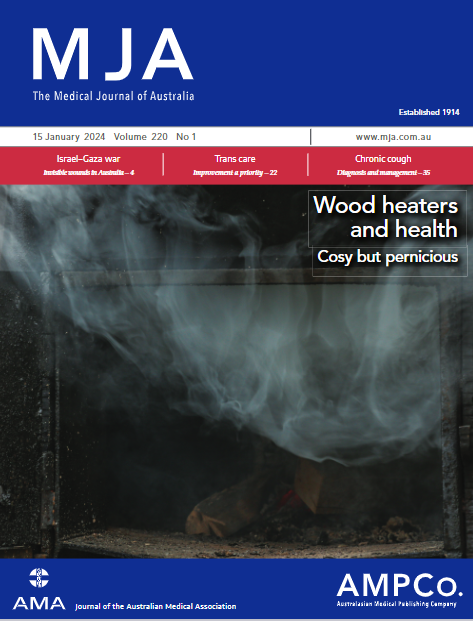The likelihood of hospital-acquired complications in older people with dementia: a matched cohort study
Abstract
Objectives
To investigate whether the likelihood of hospital-acquired complications for older people in Australia differs by whether they have dementia.
Study design
Matched cohort study.
Setting, participants
People aged 60 years or older with dementia who were admitted to five public hospitals in the South Western Sydney Local Health District, New South Wales, 1 January 2010 to 31 December 2020, and people without dementia admitted during the same period, matched by age, sex, number of medical conditions, and presence of selected specific medical conditions, emergency admission status, history of falls, and admission from a nursing home.
Main outcome measures
Hospital-acquired complications (falls, pressure injuries, delirium, pneumonia, venous thromboembolism, new incontinence, malnutrition, in-hospital death), by dementia status.
Results
A total of 217 459 people aged 60 years or older were admitted to the five hospitals during the study period. The mean age of the 11 393 patients with dementia (83 years; standard deviation [SD], 7.5 years) was higher than that of the 206 065 patients without dementia (73 years; SD, 8.9 years), and the proportion of women slightly larger (55% v 50%). Median hospital length of stay was longer for people with dementia (nine days; interquartile range [IQR], 4–19 days) than for people without dementia (three days; IQR, 1–9 days), and the number of in-hospital deaths higher (768, 7% v 584, 5%). After propensity score-based matching, the risks of falls (odds ratio [OR], 4.7; 95% confidence interval [CI], 3.8–5.7), pressure injury (OR, 1.4; 95% CI, 1.1–1.8), delirium (OR, 2.4; 95% CI, 2.0–3.0), and pneumonia (OR, 1.3; 95% CI, 1.01–1.7) were higher for people with dementia than for those without dementia; differences between the two groups in the risks of venous thromboembolism, malnutrition, and incontinence were not statistically significant.
Conclusions
Given the greater risk of many hospital-acquired complications for people with dementia, targeted models of person-centred care are needed to ensure the best outcomes for these patients.

 求助内容:
求助内容: 应助结果提醒方式:
应助结果提醒方式:


